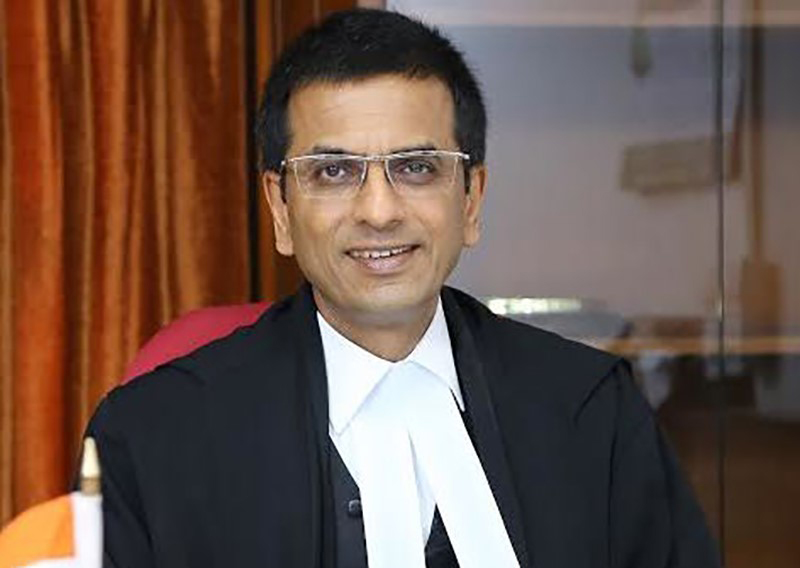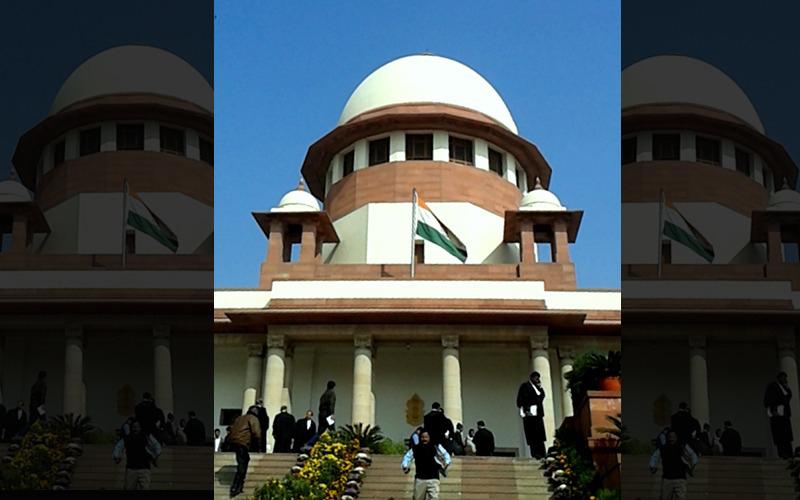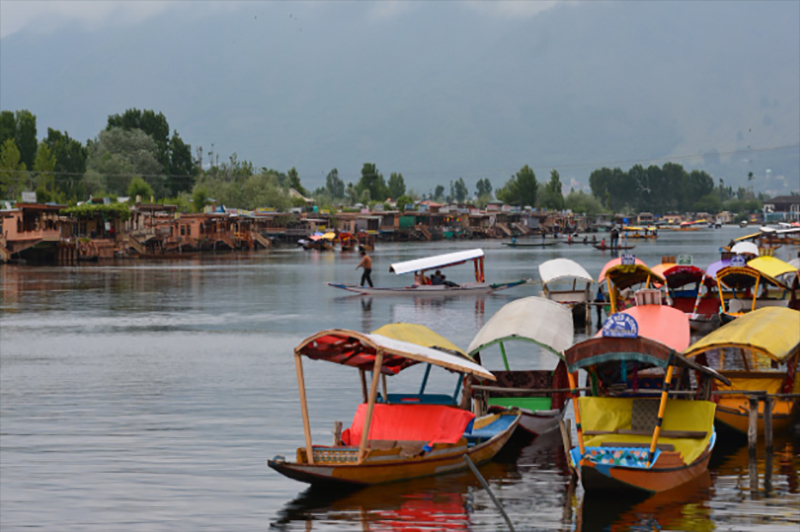Article 35A deprived Jammu and Kashmir non-residents of fundamental right: Supreme Court
New Delhi/IBNS: Backing the Modi government's landmark step, Chief Justice of India DY Chandrachud on Tuesday said (now scrapped) Article 35A of the Indian Constitution used to deny non-residents of erstwhile state Jammu and Kashmir their fundamental right.
Article 35A used to allow the Jammu and Kashmir state's legislature to define "permanent residents" of the state and also provided special rights and privileges to those permanent residents, through the presidential order.
 CJI DY Chandrachud | Photo courtesy: Wikipedia
CJI DY Chandrachud | Photo courtesy: Wikipedia
CJI Chandrachud said as quoted by NDTV "There is a direct right under Article 16(1) which was taken away was employment under the state government. Employment under the State Government is specifically provided under Article 16(1).
"So while on the one hand Article 16(1) was preserved, on the other hand, Article 35A directly took away that fundamental right and was protected from any challenge on this ground." (sic)
CJI Chandrachud made the comment during the hearing of the petition challenging the scrapping of Article 370.
Mentioning Article 19 which gives people of India the right to live and settle in any part of the country, the CJI said, " Hence all the three fundamental rights were essentially taken away by 35A... Power of judicial review was taken away."
 Supreme Court | Photo courtesy: Wikipedia
Supreme Court | Photo courtesy: Wikipedia
Citing Right to Education, Solicitor General Tushar Mehta, who argued for the Centre, said the Modi government's step to scrap both Articles 370 and 35A levelled Jammu and Kashmir with the rest of the vast country.
Modi govt's bold Kashmir step in 2019
Soon after getting re-elected for the second term with a brute majority in May 2019, Prime Minister Narendra Modi and his government scrapped Articles 370 and 35A leading to massive political ramifications, fulfilling the ruling Bharatiya Janata Party (BJP)'s poll promise of decades.
With the decision, the politically-volatile and terrorism wracked Jammu and Kashmir, a bone of contention and military disputes for over seven decades between two nuclear armed neighbours of India and Pakistan, lost the enjoyment of any special status with the Modi government's move to integrate the Muslim-majority region with the rest of the country and bifurcate the state into two.
 Jammu and Kashmir | Photo courtesy: Pixabay
Jammu and Kashmir | Photo courtesy: Pixabay
Articles 370 and 35A in brief
Article 370 used to allow Jammu and Kashmir to have its own constitution, flag and right to handle its own laws except on matters that impact national security.
Article 35A used to allow the Jammu and Kashmir state's legislature to define "permanent residents" of the state and also provided special rights and privileges to those permanent residents, through the presidential order.
IBNS
Senior Staff Reporter at Northeast Herald, covering news from Tripura and Northeast India.
Related Articles

Warm welcome, big diplomacy: Indian PM Narendra Modi starts three-nation tour in Jordan
Prime Minister Narendra Modi arrived in Jordan on Monday as part of his three-nation tour, receiving a warm welcome from members of the Indian community. Jordan’s Prime Minister, Jafar Hassan, greeted the Indian leader at the airport upon his arrival.

India strengthens diplomatic ties: Jaishankar to visit Israel following UAE dialogue
Indian External Affairs Minister S. Jaishankar will visit Israel on Monday, following meetings with top leaders of the United Arab Emirates (UAE), the Ministry of External Affairs said.

Messi surrounded by VIPs, fans rage: Five held in stadium vandalism case
Kolkata/IBNS: Five individuals have been arrested in connection with the vandalism at Salt Lake Stadium during the G.O.A.T. India Tour 2025 featuring Argentine football icon Lionel Messi, The Telegraph reported.

Centre moves to replace MGNREGA with 'G Ram G', sets stage for winter session showdown
New Delhi/IBNS: The Centre has ignited a fresh political confrontation in Parliament by introducing a Bill to replace the Mahatma Gandhi National Rural Employment Guarantee Act (MGNREGA), a flagship rural welfare programme launched in 2005 by the then UPA government.
Latest News

Railways Ministry sanctions final location survey for new Jirania–Bodhjung Nagar Rail line in Tripura

Warm welcome, big diplomacy: Indian PM Narendra Modi starts three-nation tour in Jordan

Veteran Hollywood filmmaker Rob Reiner and wife Michele Singer found dead in LA home; police probe as culpable homicide

India strengthens diplomatic ties: Jaishankar to visit Israel following UAE dialogue

